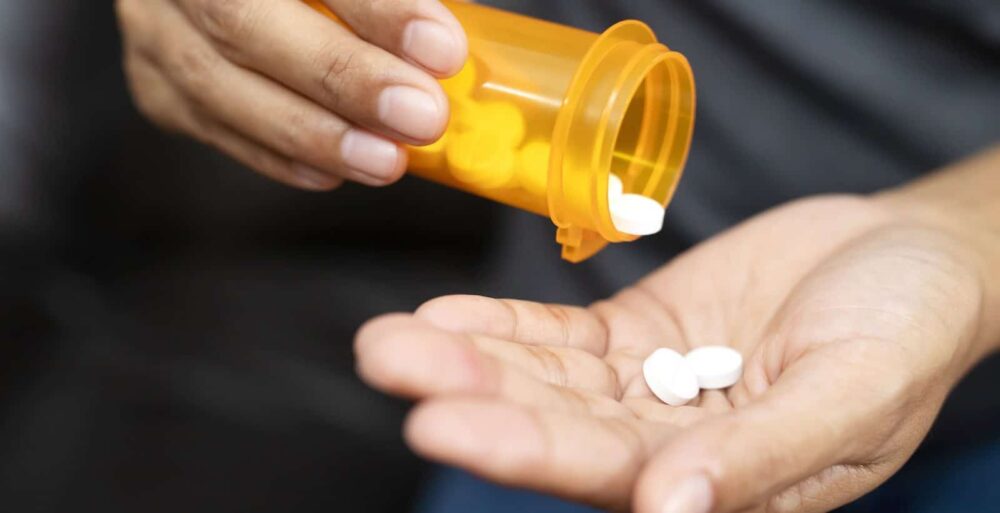Table of Contents
Opiate addiction has reached an all-time high in recent years, creating a national drug crisis of epidemic proportions. With the myriad of people dependent on these addictive drugs, many may desire treatment but have fears about the detox and withdrawal processes.
If someone wants to stop using opiates and ease the tough withdrawal symptoms, they might choose a gentle detox method. That’s why someone with substance abuse issues may decide to go to a Suboxone clinic. They think it’s a safer and easier way to withdraw compared to other clinical approaches. But does Suboxone treatment work for opiate addiction?
While Suboxone therapy may seem like the golden approach, it is best first to understand what exactly Suboxone is and analyze some of the major flaws in receiving this form of treatment before concluding the best next steps to sobriety.
Although everyone is looking for the easiest way to get sober, it is often best to question the integrity of “quick fix” solutions for long-term sobriety.
Before someone with a substance abuse disorder detoxifies with Suboxone, they must learn the side effects of taking Suboxone for opiate addiction. It’s also a good idea to review the most proven methods of treating opiate addiction long-term before deciding to take addiction treatment into their own hands. Understanding that there are better approaches to long-term sobriety than quick fixes is also beneficial. Learning these approaches and how to utilize them will allow for lifelong success in sobriety.
What is Suboxone, and How is it Used for Opiate Addiction?
In simplest terms, Suboxone is a prescription medication typically used to treat opioid addiction. The main, active ingredients in Suboxone work together with buprenorphine and naloxone to prevent withdrawal symptoms experienced with opioid addiction by blocking opiate receptors and reversing the effects of opioids on the brain.
Buprenorphine is like other opioid drugs, but it doesn’t give you a super intense high. Some experts say it’s less likely to make you overdose. Naloxone, on the other hand, is a powerful opioid antagonist. It blocks the effects other opioid drugs have on the brain, firing off less of the “reward” centers in the brain and making opioids less desirable to take.
In this way, Suboxone is classified as an opioid partial antagonist. This means it binds to the same brain receptors as opioid drugs like heroin, OxyContin, Vicodin, and morphine. This can be particularly appealing to someone addicted to opioids because it attaches to the same receptors that an opioid attaches to, so the person’s urge to use opioid drugs is greatly reduced. This, in the short term, may appear to make a transition into sobriety easier.
Furthermore, with its wide availability and easy access, one doesn’t need to seek care from a specialized treatment center to use Suboxone. This means that doctors have the power to prescribe Suboxone to any patient claiming to have a substance abuse disorder. In fact, since being approved by the FDA in 2002, Suboxone has been prescribed to millions of Americans with opioid addiction.
Suboxone Prescription Names
Suboxone is prescribed under many names including:
- Norspan
- Cizdol
- Bunavail
- Buprenex
- Zubsolv
- Temgesic
- Butrans
- Probuphine
- Suboxone Film
Suboxone is typically prescribed for people struggling with dependence on short-acting opioids (opioids that act quicker and leave the system faster than long-acting opioids) such as heroin and prescription painkillers. However, it is not typically recommended for long-acting opioids like oxycodone and morphine. Before utilizing this form of treatment, however, it is essential that one further understands just how Suboxone is used and its major drawbacks.
Side Effects and Addictiveness of Suboxone
Despite the lure of a quick-fix transition into sobriety, there are major drawbacks to utilizing Suboxone as a sole treatment approach for opiate addiction management. There are several potential side effects to consider when deciding if Suboxone is right for you.
Common Side Effects of Suboxone
- Drowsiness or insomnia
- Difficulty concentrating
- Headaches or dizziness
- Impaired coordination
- Numbness or tingling in extremities (particularly the hands and feet)
- Stomach pain, vomiting, digestive issues
- Opioid withdrawal symptoms (body aches, abdominal cramps, rapid heart rate, etc.)
Suboxone Side Effects That Require Immediate Medical Attention
- Severe cognitive impairment
- High blood pressure
- Heart palpitations
- Complete loss of coordination
- Severe physical weakness
- Blurred or double vision
- Jaundice
- Shallow or weak breathing
- Severe nausea and stomach pain
- Slurred speech
Although rare, Suboxone can cause a life-threatening allergic reaction.
Seek emergency medical care immediately for the following symptoms:
- Hives
- Difficulty breathing
- Swelling of the tongue, throat, lips, or face
Because Suboxone works on the same brain receptors that opioid drugs interact with, it has the ability to become addictive to the user. Therefore, the best approach for lasting sobriety from opiate addiction is to eliminate all chances of perpetuating addiction and receive a more holistic, well-rounded treatment plan.
Receiving Treatment for an Opiate Addiction That Works
There are more effective ways to treat an opiate addiction than Suboxone therapy. One of the most effective ways to have long-term success with sobriety is to go to an inpatient or intensive outpatient drug rehab facility.
Suboxone is merely replacing one form of addiction with another drug, which can potentially become addictive to the user. Because it’s only treating addiction on the surface level, the risk of relapse is much greater. Treating the addiction on a much deeper level takes time and effort, but the results have a greater chance of being sustainable long-term.
Finding a drug rehab specializing in a holistic, well-rounded treatment approach is proven to provide the longest-lasting results needed to maintain life-long sobriety. As such, receiving therapy or counseling in an inpatient or intensive outpatient rehab will help to uncover the reasons why you are addicted to opioids in the first place. Understanding your triggers around coping with drugs will give you the awareness and tools to handle the triggers that may pop up daily to avoid relapse traps.
You can have long-term sobriety without the pain of intense withdrawal symptoms and side effects often experienced with opiate addiction and Suboxone treatment. You deserve lifelong sobriety and not a quick fix that can set you up for future relapse.
If you or a loved one are seeking drug treatment in Austin, consider Infinite Recovery. Our experienced clinical team takes a holistic, hand-tailored approach to our patients, and we are ready to help you start living a life
Reach out to our friendly admissions coordinators to start living a life full of purpose and fulfillment that sobriety offers.
Sources:
- Entringer S. Suboxone Uses, Dosage, Side Effects & Warnings. Drugs.com. Published June 1, 2022. Accessed June 24, 2022. https://www.drugs.com/suboxone.html
- National Institute on Drug Abuse. Naloxone DrugFacts. National Institute on Drug Abuse. Published January 11, 2022. Accessed June 24, 2022. https://nida.nih.gov/publications/drugfacts/naloxone
- National Institute on Drug Abuse. How do medications to treat opioid use disorder work? National Institute on Drug Abuse. Published December 2021. Accessed June 24, 2022. https://nida.nih.gov/publications/research-reports/medications-to-treat-opioid-addiction/how-do-medications-to-treat-opioid-addiction-work
- Brewer A. Suboxone (buprenorphine and naloxone): Side effects, dosage, and more. Published June 15, 2022. Accessed June 24, 2022. https://www.medicalnewstoday.com/articles/325827
















